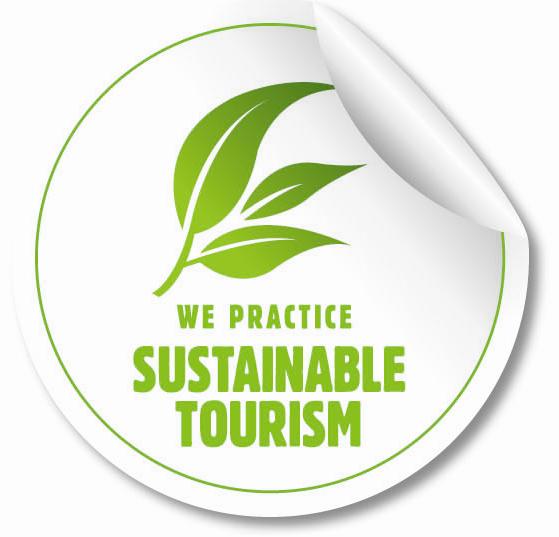Sustainable Tourism: Barking Up the Wrong Tree

Generating a mighty one billion tourists worldwide and $900million in revenue in 2012, (Institute of International Relations and Strategy, IRIS), tourism is the world's most lucrative industry.
The fact that tourism is such a thriving industry doesn't necessarily lead major actors to question the sustainability of their activities, when in fact there are serious issues at hand that are not restricted to a loosely environmental impact.
If addressed and made sustainable, tourism can be the key in increasing a country's competitiveness, thus giving off clear signs that it is open for business to international companies looking for somewhere to set up a secondary hub - not a negligible impact in the light of the recession.
Last weekend at a Geopolitical Tourism IRIS conference in Enghien-les-Bains, France, a significant problem was underlined. There is a serious lack of diversity in the landscape and in the overall holiday experience offered at different tourist hotspots, whether in the Caribbean, North Africa, the Mediterranean or Thailand. And it is this 'uniformisation' of destinations that not only impacts the local aesthetic value of a destination, but also makes a country's long-term competitiveness very fragile especially in a financial crisis and in the wake of the Arab Spring.
Tourism can no longer exist as it started in Spain in the Sixties with uncontrolled building of enormous resort hotels of convenience, a concept originally developed by the Parador group, which has since caught on like a merciless epidemic. Scared of being different for fear of not appealing to the relatively wealthy lay western tourist, countries have let themselves be colonized by the Parador model, which has been adopted by a number of large international corporations and applied across the world - a winning formula, but only up to a certain point.
The lesson here is that if the countries had banked on using more authentic draws to appeal to a wider range of tourists, not only would each area's identity be distinct from the troublesome capital cities instead of every area being lumped in together and the entire country being labeled as a danger zone, but there might just have been a chance of pulling through with a continuous flow of tourists. Instead, these destinations were struck off the tourist map - after all why should tour operators sell holidays in countries that have been branded as risky when they've got mounds of products in peaceful Portugal, Spain, Turkey, Cyprus and in the Greek islands, all offering the exact same thing?
What politicians and actors within the sector haven't understood, said Jean-Louis Baladraud, is that interdependence between sustainable tourism and development can be a way of hauling ourselves out of the recession. And the poor show at this year's Rio+20 - Cameron, Obama and Merkel opted not to attend - just goes to show how tourism has been put on the backburner when it could be used more strategically to fight against the financial crisis that has hit the West and the collapse following the uprisings in the MENA region.
Morocco for example, where the tensions were mainly localized in Marrakesh and Tangiers, has suffered a drastic fall in tourist arrivals. Despite the British Foreign and Commonwealth Office currently holding no formal restrictions when it comes to travelling to Morocco, Thomas Cook, one of the UK's biggest tour operators, has dropped Morocco entirely from its portfolio, which has had a dramatic impact on Morocco's economy. However, certain touristic zones like Essaouira and Agadir, and even Marrakesh, the capital, are peaceful. For having been to Essaouira in June and a colleague having travelled to Agadir over the summer, there were no signs of trouble. Popular cruise companies Holland America and Cunard also substituted stops in Tunisia and Egypt on their itineraries just last month, despite there being no reports of unrest at the destinations concerned.
Hit by political chaos, North African countries have suffered the most, but so have other similar destinations, from the Caribbean (Holguin in Cuba, Yucatan in Mexico, Punta Cana in the Dominican Republic, Ocho Rios in Jamaica, Phuket in Thailand, Antalya in Turkey, Agadir in Morocco, and the list continues). In wanting to adapt themselves completely to the lay Western tourist, but as the recession bites and trends change, the countries are slowly losing their visitors who prefer to go somewhere that offers better quality holidays comprised of a more authentic experience at a destination closer to home. But already ruined by the Parador model, it is too late to overturn these countries' initial short-sightedness. When money is lacking, why pay significantly more to travel halfway across the world when exactly the same infrastructure and weather is available a two-hour flight away? These countries have nothing left to offer, plunging them into financial woes with no ends and losing them a competitive edge on a global scale.
Tourism can be a real lifeline for a country. But as countries bank on providing the same generic holiday experience to tourists based on the 1960s Spanish Parador model, it puts countries branded as holiday destinations in a delicate position either because they have tailored all their infrastructures to a limited type of tourist that today is financially in trouble, or because political unrest has marred their image, leaving them prone to financial collapse.
If sustainable, tourism can serve to build a long-term stable economy if only the focus is shifted from big international corporations that create uniform holiday models to local entrepreneurs and producers. By default, this will encourage the development of a distinct identity of a destination, drawing in tourists for its local appeal that cannot be found elsewhere in the world, rather than for generic advantages that are no longer appealing in light of trouble. Increasing a country's competitiveness is important to give off the right signal to a wider range of tourists as well as businesses and can only be done through the development of a more organic, intelligent tourism industry.













